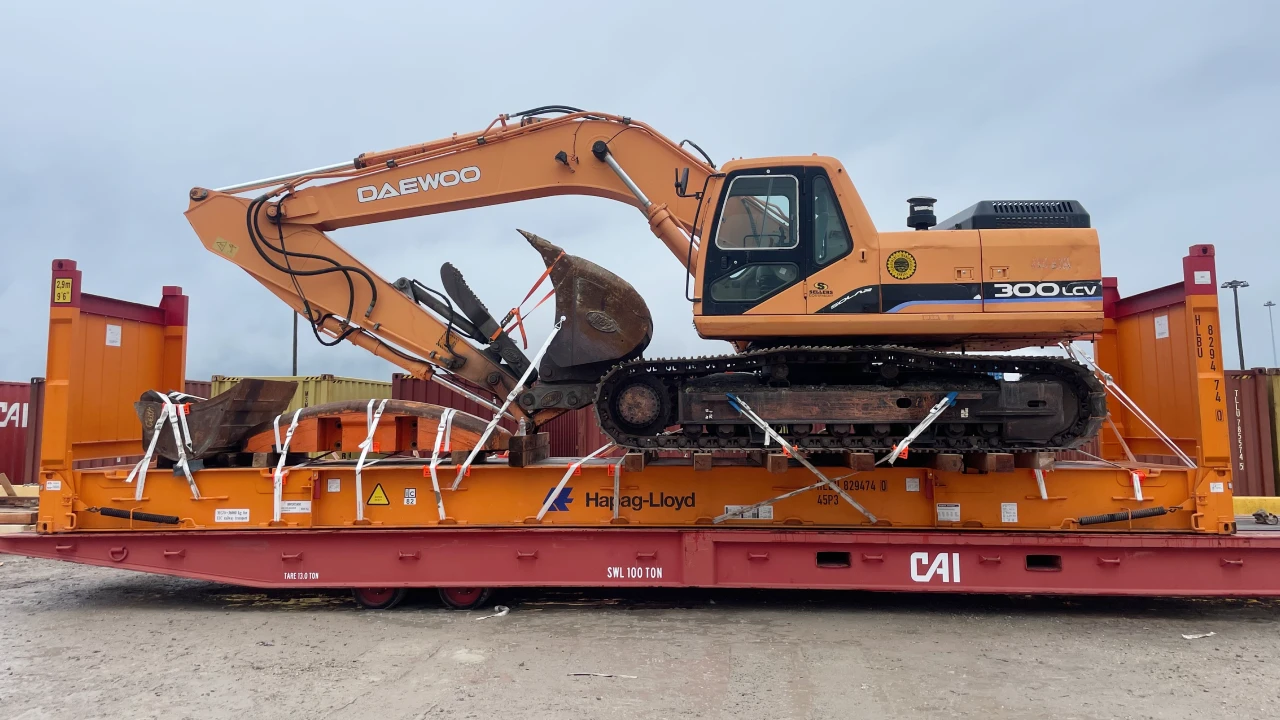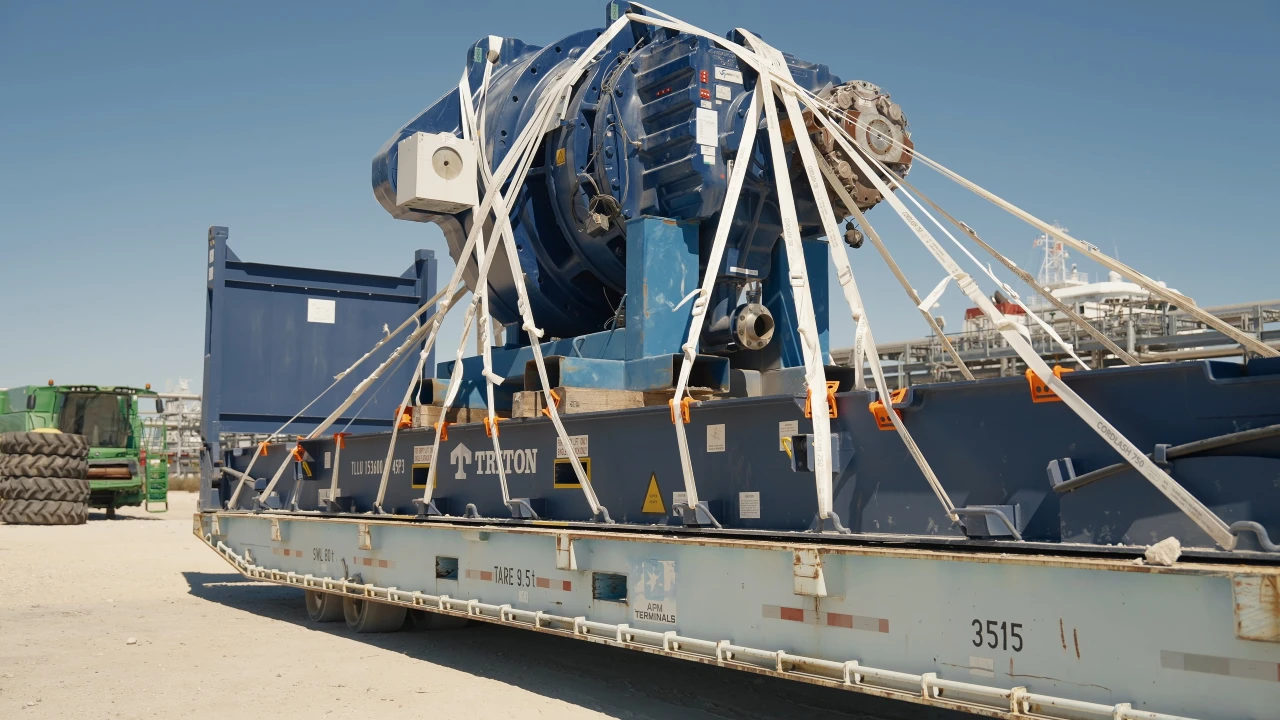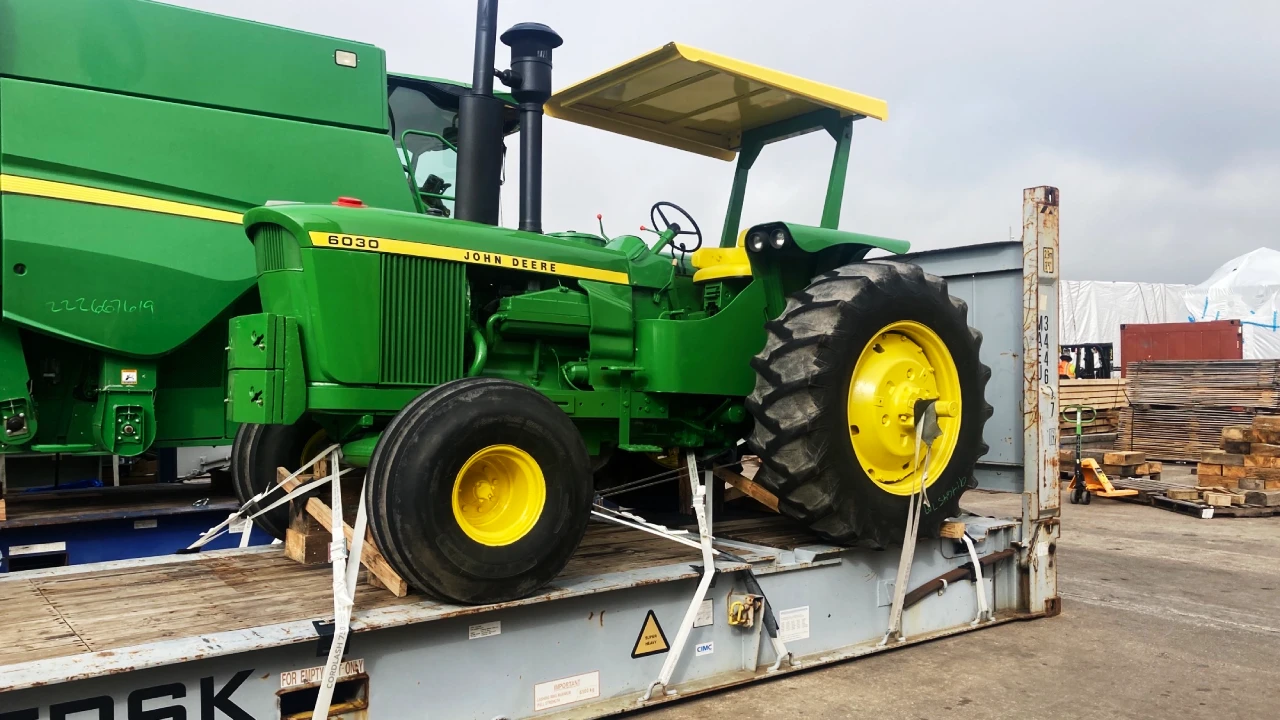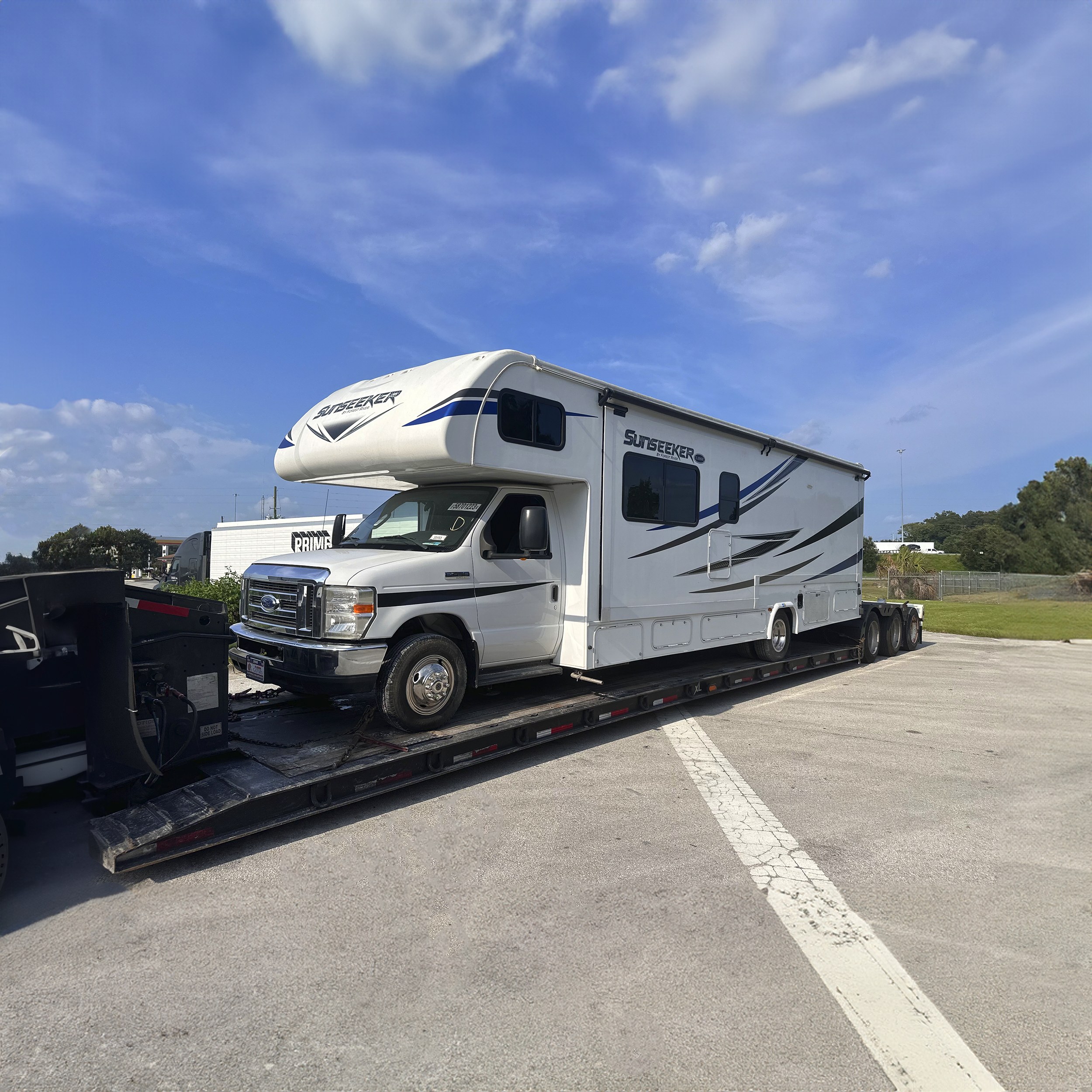
Dreaming of exploring a new part of the country or even a new country in your RV? Maybe you’re selling your motorhome or caravan and need to ship it to its new owner. Whatever your reason for shipping RV, proper preparation is key. This article will answer all your questions and provide a step-by-step guide to ensure your RV arrives safe and sound.
Pre-shipping Preparation of an RV

Transporting your motorhome or caravan can be a convenient way to get it to a distant location, but some prep work beforehand ensures a smooth journey for your vehicle. Here’s a checklist to get you started.
Inspection
Give your RV a thorough once-over. Look for any leaks, loose parts, or potential damage that could worsen during transport. Address any issues you find before shipping.
Secure Your Belongings
Empty cabinets, drawers, and shelves. Pack away any loose items that could fly around during transport. Secure remaining items with bungee cords or straps to prevent them from shifting.
Tanks Inspection
This is crucial. Completely empty your freshwater, greywater, and blackwater tanks. Residual water can spill around and cause damage during transport. Don’t forget to drain your antifreeze as well.
Utilities
Disconnect your RV from any shore power or utility hookups. Also, retract your awning and satellite dish (if applicable) to avoid problems during transport.
External Accessories
Remove any awnings, ladders, or bike racks that could be damaged during transport. If removal isn’t possible, securely fasten them to minimize movement.
Don’t Forget About Maintenance
Perform any routine maintenance your RV needs before transportation. This could include checking tire pressure, topping off fluids, and ensuring all lights are functional.
Communication
Inform the shipping company of any pre-existing damage, special features, or operational quirks of your RV. This will help them handle your vehicle appropriately.
Insurance Check
Double-check your RV insurance to ensure it covers shipping. Probably, you might need additional coverage and Atlantic Project Cargo can help you to choose the right option.
Be Prepared for Pickup
On the day of transportation, have all your paperwork ready, including the bill of lading and insurance documents. Be present during pickup for a smooth handover to the transporting company.
RV Ground Shipping Methods
There are two basic options if you are planning to ship your RV via ground. It is road and railway. Let’s have a look at the details.
Road
In the event that self-driving your recreational vehicle to your desired destination is not an option, three primary methods exist for its transportation.
Delivery Driver
This service entails the selection of a qualified driver by an RV transport company to navigate your RV from its origin to its final destination. While naturally limited to operational RVs, this approach offers a concierge-like experience with a dedicated individual overseeing the vehicle and its contents throughout the journey.
Flatbed Transport
A widespread method for RV transportation, flatbed shipping is good at efficiently moving single or multiple RVs across significant distances. Its potential cost-effectiveness arises from the ability of shipping companies to fulfill multiple orders on a single flatbed trailer. You can explore rates offered by Atlantic Project Cargo on our quote page. The primary drawback associated with flatbed transport is potentially extended delivery time compared to driver-facilitated delivery.
Tow-Away Services
This method involves the use of specialized equipment and long-haul trucks by shipping companies to tow your RV to its designated location. While this approach prioritizes safety during transport, it may have higher costs depending on the size, weight, and other characteristics of your RV.
Railroad
While commonly employed for freight and passenger transportation, railway delivery for RVs occupies a niche position within the RV shipping landscape. Here’s a closer look at this method
Availability and Limitations
Unlike the more widespread methods of driving, towing, or flatbed trucking, rail transport for RVs is not as widely available. This stems from a limited network of rail terminals equipped to handle recreational vehicles and the potential for route restrictions.
Advantages
For specific scenarios, rail transport can offer certain advantages. Over long distances, it might prove more cost-effective compared to traditional methods due to the efficiencies of rail travel.
Safety considerations can also favor rail transport. Securely fastened onto a flatcar, an RV is shielded from road hazards and different weather conditions that can happen during overland journeys.
RV Ocean Shipping Methods
For those who seek to transport their recreational vehicle across long distances or overseas, ocean shipping is a good alternative to traditional overland methods. This method offers advantages but also has limitations.
Modes of Ocean Transport for RVs
Basically, there are two options for shipping RV. RoRo and containerized shipping. Let’s have a look at them.
Roll-on/Roll-off (RoRo) Shipping
This method allows RVs to be driven or towed onto a specially designed vessel via ramps. Once onboard, the RVs are secured for the voyage. RoRo shipping is generally considered the most cost-effective and time-efficient option for ocean transport of RVs.
Containerized Shipping
Smaller RVs that can fit within a standard shipping container can be transported using this method. While offering a high degree of protection from the elements, containerized shipping is typically more expensive than RoRo and may not be suitable for larger RVs.
Advantages of Ocean Shipping
Long-Distance Efficiency
For long distances, particularly overseas relocations, ocean transport can be more efficient and potentially cost-effective compared to overland methods. Or it can be the only option if you are sending your RV to other continents.
Reduced Wear and Tear
By avoiding the wear and tear associated with extensive road travel, ocean transport can help preserve the condition of your RV.
How Much Does It Cost to Ship an RV?
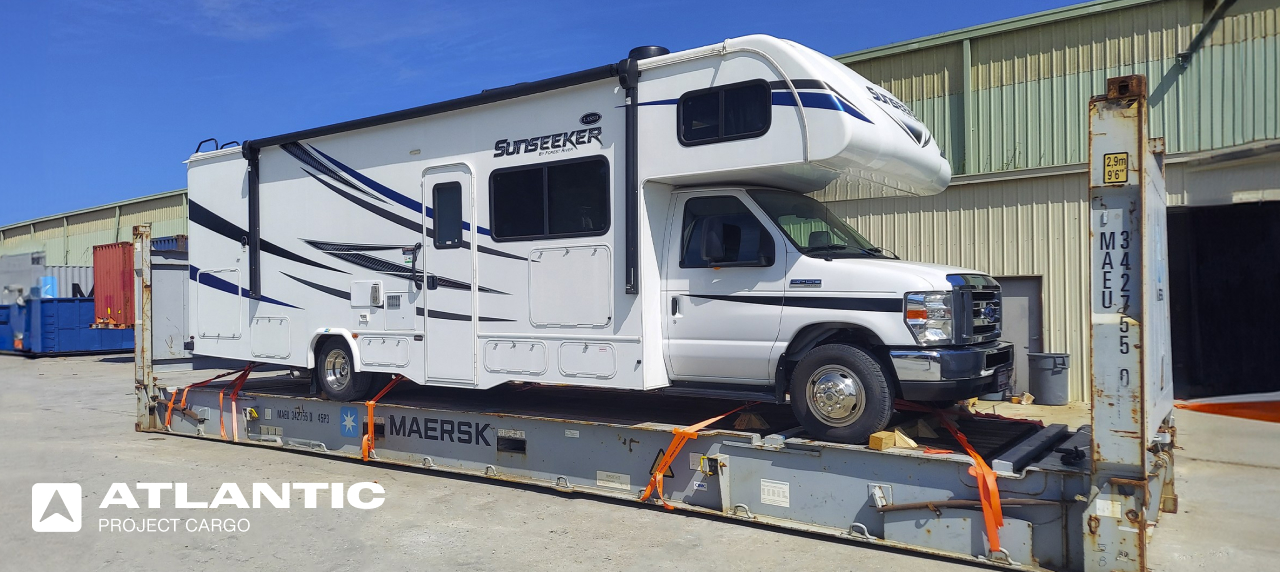
The question of cost inevitably arises when considering RV shipping. Unfortunately, there’s no one-size-fits-all answer, as the price tag depends on several factors:
- Distance traveled
- Shipping method
- RV size and weight
- Fuel costs (if applicable)
- Additional services
If you want to get a detailed quote and understand how much it will cost to ship your RV, just fill out the quote form and our managers will contact you!
What to Check When You Receive Your RV?
As your RV comes to its final destination, a few key steps await to ensure an easy transition from transport to open-road adventure.
Upon Arrival
Coordinate Arrival
Ensure clear communication with the transporting company to be present when your RV arrives (if needed). This minimizes potential delays and allows for immediate inspection.
Visual Inspection
During unloading, thoroughly examine the RV’s exterior. Compare its current condition to the documentation you prepared before transportation, noting any differences.
Interior Check
Once your RV is settled, perform a thorough inspection of the interior. Look for any noticeable movement of belongings, unsecured items, or signs of damage.
Addressing Any Issues or Concerns
Documenting Damage
If you discover any damage during the inspection, promptly document it with detailed photographs and written notes.
Contacting the Shipping Company
If your RV got damaged during transport, immediately contact the shipping company to report the issue and discuss the next steps.
Insurance Claims
For substantial damage, initiate the freight claim process with the shipping company as soon as possible.
Reviving Your RV’s Systems
This checklist will help you to quickly bring your RV back to life:
- Power and Batteries
If you have disconnected the batteries before transportation, reconnect them and ensure they have a full charge - Propane and Fuel
Reconnect propane tanks (if applicable) and refill the fuel tank as needed - Water and Plumbing
Check the water system for leaks or malfunctions. Reconnect water hoses and confirm the proper function of faucets and toilets - Electrical Connections
Reconnect any electrical connections, verifying the functionality of all appliances and onboard systems - Awning and Slide-Outs
If your RV features retractable awnings or slide-outs, carefully extend them and ensure they operate properly
Conclusion
In conclusion, shipping your RV can be a smooth and worry-free process with the right preparation and partner. By following the steps outlined in this guide and partnering with a reputable company like Atlantic Project Cargo, you can ensure your motorhome, caravan, or travel trailer arrives at its destination safely and ready for your next adventure. Atlantic Project Cargo offers expertise in shipping RVs and motorhomes, including various methods that can fit different needs and budgets. Get a free quote today and let us help you choose the best option!
By the way don’t miss our article about top RV manufacturers!
Read More
